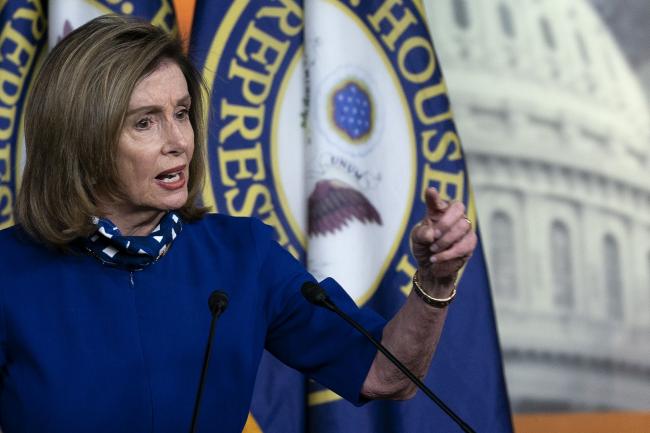(Bloomberg) -- House Speaker Nancy Pelosi said that the U.K. can forget about Congressional approval for a free-trade deal with the U.S. if Britain’s withdrawal from the European Union imperils an agreement that ended conflict in Northern Ireland.
U.K. Prime Minister Boris Johnson is facing a backlash from the EU and from within his own ruling Conservative Party after his government said it’s making plans to break its commitments to the bloc over the Irish border. Pelosi said that the U.K. must ensure the free flow of goods across the border, as agreed in Britain’s deal with the EU last year.
Last year’s accord gave Northern Ireland the same trade rules as the EU to avoid customs checks at the land border between Ireland and Northern Ireland, a key part of the Good Friday Agreement two decades go that ended years of bloodshed. A U.K. bill published on Wednesday would allow ministers to override parts of that accord.
“If the U.K. violates that international treaty and Brexit undermines the Good Friday accord, there will be absolutely no chance of a U.S.-U.K. trade agreement passing the Congress,” Pelosi, the nation’s top elected Democrat, said in a statement Wednesday.
In the U.S., while the power to negotiate trade deals is delegated to the president by Congress, agreements must later pass both chambers. Pelosi effectively controls the agenda in the lower house, where her party holds a majority, and used her leverage last year to hold up a new North American free-trade agreement to extract changes from Mexico. U.S. Trade Representative Robert Lighthizer and his U.K. counterpart began negotiations toward a trade deal in June.
The EU considers it has grounds for legal action against the U.K. over the plan, according to a document seen by Bloomberg. The EU judges it may have a case to seek legal remedies under the divorce agreement even before the U.K. internal-market bill is passed by Parliament and that it would have a clear justification once the bill becomes law, according to the EU’s preliminary analysis of the U.K. legislation.
©2020 Bloomberg L.P.

